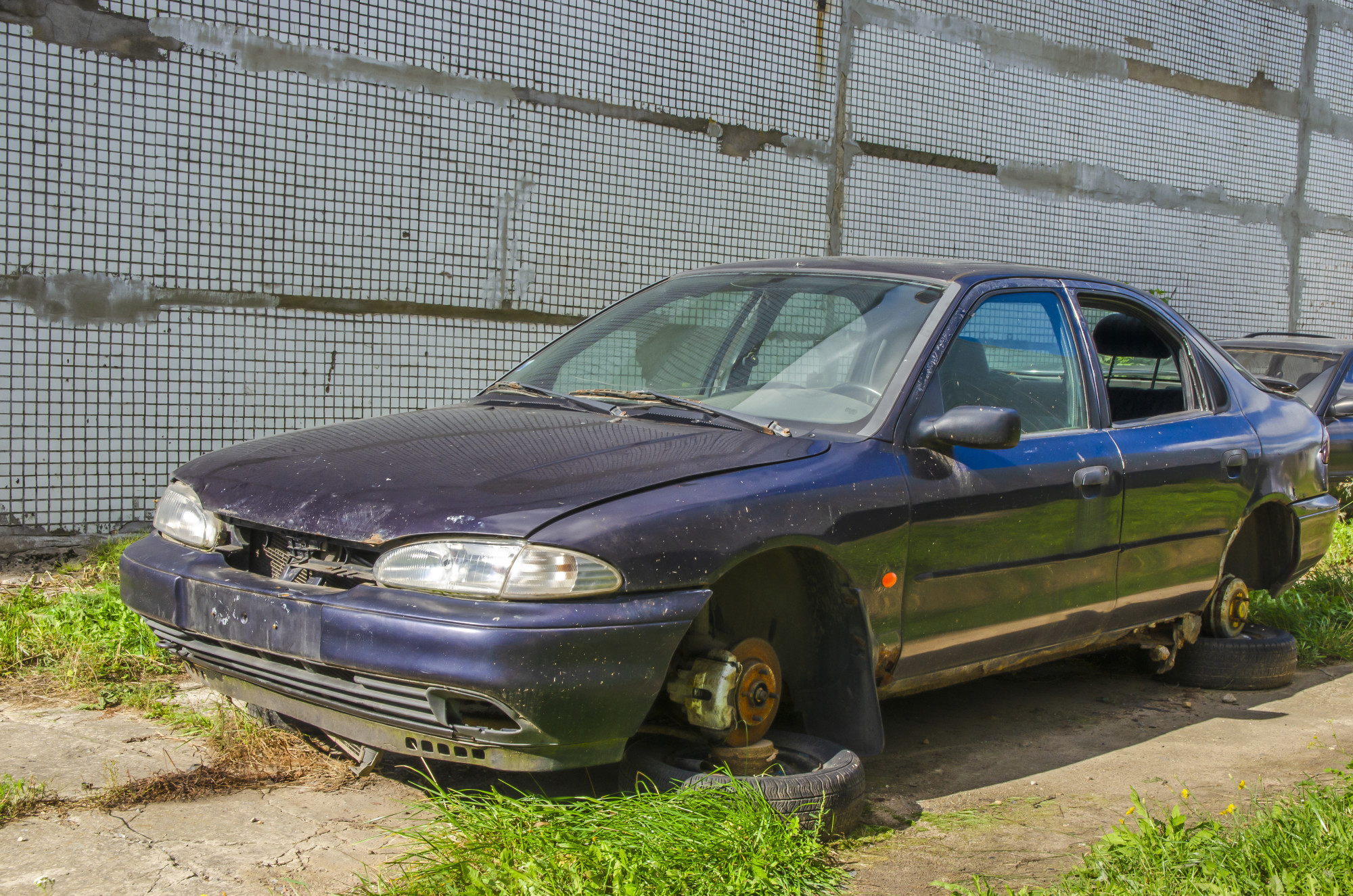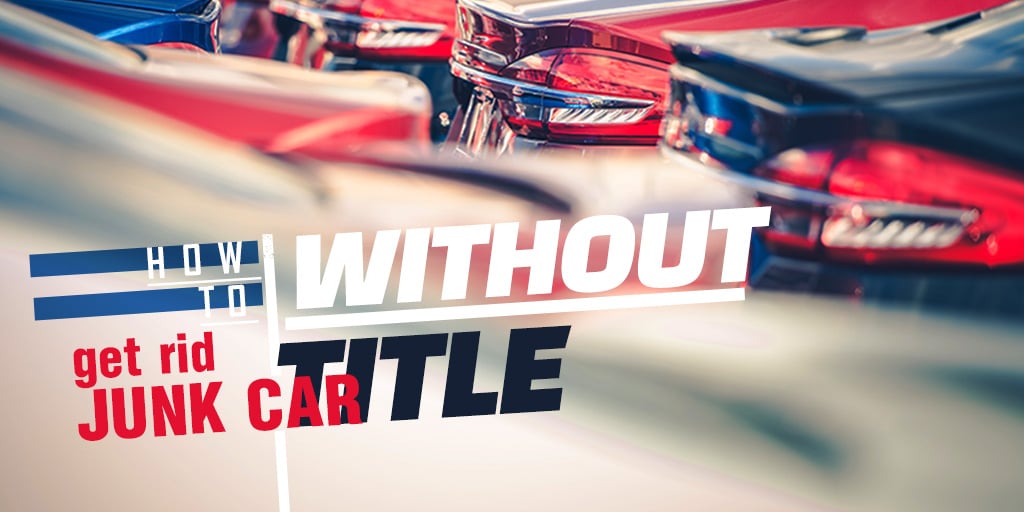how to get rid of a junk car
5 Ways to Make Money off a Junk Car
1. Can I really make money by selling my junk car?

Yes, you can definitely make money by selling your junk car. There are several ways to do so:
- Sell the car to a junkyard or scrap metal yard.
- Part out the car and sell individual components.
- Sell the car for its salvage value to a salvage yard.
- Advertise and sell the car privately to someone looking for parts or a project car.
- Donate the car to a charitable organization and potentially receive a tax deduction.
2. How much can I expect to get for my junk car?

The amount you can expect to get for your junk car depends on various factors, such as:
- The condition of the car (whether it can still be driven or not).
- The make, model, and year of the car.
- The demand for parts from that specific car.
- The current market value of scrap metal.
It is recommended to get quotes from multiple buyers to get an idea of the range of offers you can expect.
3. Is it possible to sell a junk car without a title?
Yes, it is possible to sell a junk car without a title, but it can be more challenging. Here are a few options:
- Check with your local Department of Motor Vehicles (DMV) to see if you can obtain a duplicate title.
- Sell the car to a junkyard or scrap metal yard that accepts cars without titles. They may require additional documentation.
- Contact a company specializing in buying junk cars without titles, as they have experience navigating the necessary paperwork.
However, it's important to note that selling a car without a title may impact the value and potential buyers.
4. How do I determine if parting out my junk car is worth it?
Parting out a junk car involves selling individual components separately. Here's how you can determine if it's worth it:
- Research the market value and demand for the specific car parts you have.
- Evaluate the condition of the parts and assess their potential saleability.
- Consider the time and effort required to dismantle and sell each part.
- Weigh the potential profits from selling parts individually against the offer you can get for the entire car.
It's important to have a good understanding of the market and the potential value of the parts before deciding to part out your junk car.
5. What are the advantages of selling a junk car to a salvage yard?
Selling a junk car to a salvage yard offers several advantages, including:
- Convenience: Salvage yards typically provide towing services to pick up the car at no additional cost.
- Quick cash: You can receive payment for your junk car on the spot.
- Environmentally friendly: Salvage yards recycle and reuse car parts, reducing waste and the demand for new materials.
- Freeing up space: Getting rid of a junk car can free up space in your garage or driveway.
- Opportunity to negotiate: Salvage yards may be open to negotiating the price, allowing you to get the best deal.
6. Should I sell my junk car privately or to a junkyard?
Deciding whether to sell your junk car privately or to a junkyard depends on your specific circumstances. Consider the following:
- If your priority is to sell quickly and easily, selling to a junkyard may be the best option.
- If you have the time and energy to sell the car privately and believe you can fetch a higher price, consider advertising it.
- Assess the condition of your car – if it can still be driven, selling it privately may attract more potential buyers.
- Research the demand for parts from your specific car model. If there is a high demand, parting out and selling privately might be more profitable.
- Weigh the pros and cons of each option and choose the one that aligns with your goals.
7. Can I donate my junk car to charity?
Yes, you can donate your junk car to a charitable organization. It can be a win-win situation, as it allows you to get rid of the car while potentially receiving a tax deduction. Here's what you need to know:
- Research charitable organizations that accept car donations.
- Ensure the organization is a registered 501(c)(3) non-profit, as only donations to these organizations are tax-deductible.
- Confirm if the charity accepts junk cars or has specific requirements regarding the condition of the vehicle.
- Follow the donation process outlined by the charity, which may involve filling out forms and arranging for the car to be picked up.
8. How can I get the most money for my junk car?
To maximize the amount of money you can get for your junk car, consider the following tips:
- Get quotes from multiple buyers to compare offers and negotiate the best price.
- Ensure you have all the necessary paperwork and documentation for a smooth transaction.
- If the car is still drivable, consider selling it privately to potentially attract higher offers.
- Research the market value of scrap metal and specific parts to have an idea of what your car is worth.
- Explore different selling options, such as parting out the car or selling to a salvage yard, to find the most profitable route.
9. Are there any additional costs associated with selling a junk car?
When selling a junk car, there may be additional costs to consider:
- Towing fees: Some junkyards or salvage yards charge towing fees if you cannot deliver the car yourself.
- Paperwork fees: Depending on your location and the buyer, there may be administrative fees for transferring ownership or obtaining duplicate titles.
- Transportation costs: If you choose to sell the car privately and the buyer is not local, you may need to arrange for transportation or delivery, which can incur expenses.
- It's important to factor in these potential costs when assessing the overall profit you can make from selling your junk car.
10. What should I do with my junk car if I cannot sell it?
If you are unable to sell your junk car, there are a few alternatives:
- Contact local recycling centers to inquire if they accept junk cars and if they offer any compensation for recycling.
- Reach out to auto dismantlers who may be interested in salvaging usable parts from the car.
- Consider donating the car to a vocational or trade school that offers auto repair programs. They can use the car for educational purposes.
- Check with local scrap yards or junkyards to see if they can accept your car and properly dispose of it for a small fee.
11. Are there any legal requirements when selling a junk car?
When selling a junk car, legal requirements may vary depending on your jurisdiction. Here are some common considerations:
- Title transfer: Ensure you properly transfer the ownership of the car to the buyer. This typically involves signing the title and providing necessary documentation.
- Release of liability: Some states require you to complete a release of liability form to protect yourself from any future legal or financial responsibilities associated with the car.
- License plates: In some cases, you may need to remove the license plates from the car before selling it. Check your local regulations for guidance.
- Duplicate title: If you've lost the title, you may need to obtain a duplicate from your local DMV before selling the car.
12. Can I sell a junk car that doesn't run?
Yes, it is possible to sell a junk car that doesn't run. Junkyards and salvage yards often buy non-running cars for their salvage value or usable parts. Here's what you can do:
- Reach out to local junkyards and salvage yards to inquire if they accept non-running cars.
- Provide accurate information about the condition of the car, including details on why it doesn't run.
- Be prepared for a potentially lower offer compared to a running car, as the salvage value will be based on the car's condition and the parts that can be salvaged.
In conclusion, selling a junk car provides various opportunities to make money or dispose of the vehicle responsibly. Whether you choose to sell it to a junkyard, part it out, sell privately, or donate, consider the condition of the car, legal requirements, and potential costs to make an informed decision.